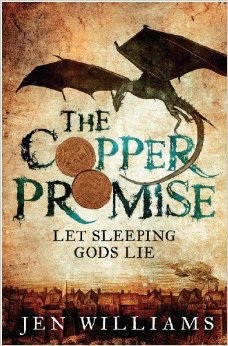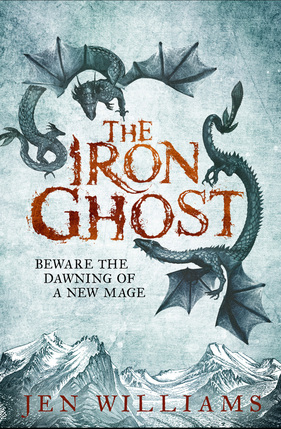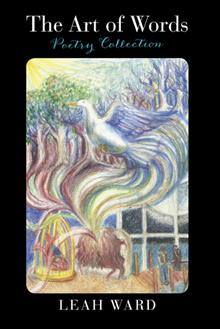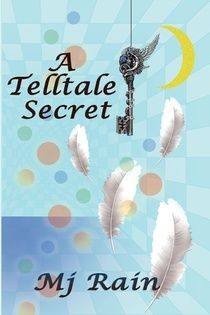 Click for Source Image
Click for Source Image With the colossal popularity of Game of Thrones and the book series which it's based on, A Song of Ice and Fire, the current trend in fantasy fiction is, somewhat predictably, to copy it. As tends to be the way, though, it's the most superficial elements which people are latching onto: the bleakness, the realism, and of course the grim darkness of a story where anyone can die.
Not that there's anything wrong with writing a story with those aspects to it, but it does get a little tiresome when everyone's doing it. A Song of Ice and Fire is, despite having become bloated lately, still a masterpiece, but it's not the darkness itself which makes it such a great read. What makes it work is that Martin knows fantasy inside out, is well versed in the genre's conventions, and decided to use his magnum opus as an opportunity to deconstruct it. And that's great: every genre could do with a little more detailed examination, and it's absolutely worth taking the time to pull apart cliches and try to examine how things might really go in these imagined worlds.
 Click for Source Image
Click for Source Image Deconstruction is a great thing, but the only reason to take something apart is to learn more about how it works, so that when you put it back together it runs faster and more efficiently than before. You don't dismantle a car engine for its own sake: you do it so you can learn from it and make a better engine next time. And happily, this is exactly what Jen Williams did for her riotously entertaining debut novel, heroic fantasy epic The Copper Promise.
And it actually is heroic fantasy, which is a refreshing change of pace these days. The three main characters - a fallen knight, a thief and an exiled lord - are all relatably flawed and far from perfect, but they're still good people. There's no question that they're heroes, even if they make some very bad decisions along the way; despite and indeed because of their flaws, they're all likeable in their own way, and the reader doesn't need to struggle with working out which of the characters they hate the least and latching onto them among a cast of uniformly horrible people.
Which isn't to say that this is rainbows-and-unicorns fantasy: it's old-fashioned in some ways, but it's learned all the right lessons from the deconstructionist fantasies we've seen of late. The world is grim and the villains diabolical, the battle sequences are vivid and bloody and plenty of people die, but none of it feels gratuitous and it isn't there out of a childish desire to be dark for its own sake. There is darkness here, but it's never excessive: there's just the right amount for the world to feel believable, but not so much that you wouldn't want to visit it, which is quite important for a genre so founded in escapism. There's beauty amidst the bleakness, which makes a huge difference because the world actually feels worth saving.
And onto this world and these characters is grafted a story which, while not lacking in twists and turns, manages to be lean, relatively uncomplicated and pleasantly classical. It's fairly episodic and our heroes do get involved in side quests on the way, but everything ties in to the overarching goal: slay an evil dragon god and her army of lizard-women who are trying to destroy the world. Having clearly delineated villains for the main characters to act against is something of a rarity in a genre which has mostly painted in shades of grey lately, and it's been a long time since a simple "kill a dragon and save the world" quest narrative was executed this well.
Even better, it isn't overlong and tells a complete story with a definitive ending. Williams left the door open for a sequel, which was recently published under the title The Iron Ghost, but this is one book which tells one story. In a genre where even the best writers seem to be unable to write anything other than a twelve-book saga where each instalment clocks in at around a thousand pages, it's a wonderful thing to discover an author who knows what restraint is.
Appropriately enough, The Copper Promise recalls a good Dungeons & Dragons campaign in a lot of ways. It has dungeon crawling, a bickering, snarky trio of main characters (fighter, mage and thief, naturally), magic swords and cursed armour, and a genuinely thrilling dragon battle as its climax. Considering that D&D is about as classical, traditional and implausible as fantasy gets, this was a gutsy move given that most people are trying to make their worlds as grim and realistic as possible at the moment. It's paid off handsomely, and makes for a thoroughly satisfying change from the current norm in fantasy fiction.
George R. R. Martin himself once said, "We read fantasy to find the colours again, I think. To taste strong spices and hear the songs the sirens sang." It feels like lately, in our attempts to learn from his work, we've lost sight of these colours and spices - and it's those moments of hope and goodness amongst the darkness and despair that make A Song of Ice and Fire worth persevering with. In The Copper Promise, we have a book which reminds us why we read fantasy, and a lot of people - authors and readers - could do with that reminder.





 RSS Feed
RSS Feed
